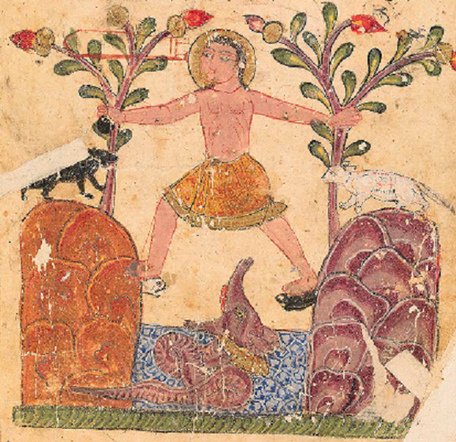A Phenomenology of the Middle Eastern Frame-Tale Collections
DOI:
https://doi.org/10.5617/jais.10120Abstract
The frame tale is a fascinating device of storytelling, whether oral or literary. The Middle Eastern frame-tale collections differ in nature from most corresponding collections in the Western literatures that are the subject of many of the existing historical and theoretical discussions. First and foremost, all of the Middle Eastern frame-tale collections are of considerable antiquity and owe their existence to the creativity of authors whose identity is lost in the mist of time. Although their diligent composition betrays the conscious hand of an intellectually gifted author, even the documented precursors of Middle Eastern frame-tale collections in the ancient Indian literatures can hardly be connected to an author known by name. Moreover, over the long history of their international dissemination, they have come to be regarded as products of popular tradition. And second, the same assessment applies to the tales the collections embed. While it remains speculative to which extent these tales themselves derive from oral or popular tradition, many of them have become part of popular tradition, whether as embedded constituents of their respective frame tales or as separate tales.
My considerations begin with an assessment of the Middle Eastern frame tales and frame-tale collections in terms of a focused definition. Although frame tales might at times embed only a single tale, my special interest is with the large collections that embed several, sometimes many, tales. I then proceed to discuss the phenomenology of the frame tales, their functional potentials, and the special relation between a given frame tale and its embedded tales. As I will repeatedly point out in my presentation, it is particularly this relation that deserves more attention than it has previously attracted.
Key words: Frame-tale, Embedding and embedded tales, The Thousand and One Nights, Kalīla wa-Dimna, The Seven Sages, Khurāfa
Downloads
Published
How to Cite
Issue
Section
License
For content published in editions of JAIS before 2002, copyright belongs to the author. Content published between 2002 and 2017 is copyrighted by Edinburgh University Press (reproduced on FRITT with permission). Text and other material published in these journal volumes can only be shared and republished with written permission from the rights holders.
Starting from 2017, the content published in JAIS is - unless otherwise is stated - licensed through Creative Commons License Attribution 4.0: https://creativecommons.org/licenses/by/4.0/. Through this licence content can be copied and distributed but also remixed, transformed and built upon for any purpose under the following conditions:
Attribution — You must give appropriate credit to the creators of materials published in JAIS, provide a link to the license, and indicate if changes were made. You may do so in any reasonable manner, but not in any way that suggests the licensor endorses you or your use.
No additional restrictions — You may not apply legal terms or technological measures that legally restrict others from doing anything the license permits.
Notice: No warranties are given. The license may not give you all of the permissions necessary for your intended use. For example, other rights such as publicity, privacy, or moral rights may limit how you use the material.
Authors who publish in JAIS accept the following conditions:
Author(s) retains copyright to the article and give JAIS right to first publication while the article is licensed under the Creative Commons CC BY 4.0. This license allows sharing the article for non-commercial purposes, as long as the author and first publishing place JAIS are credited. The license does not allow others to publish adapted versions of the article without the author's permission.
The author is free to publish and distribute the work/article after publication in JAIS, as long as the journal is referred to as the first place of publication. Submissions that are under consideration for publication or accepted for publication in JAIS cannot simultaneously be under consideration for publication in other journals, anthologies, monographs or the like. By submitting contributions, the author accepts that the contribution is published in both digital and printed editions of JAIS.



